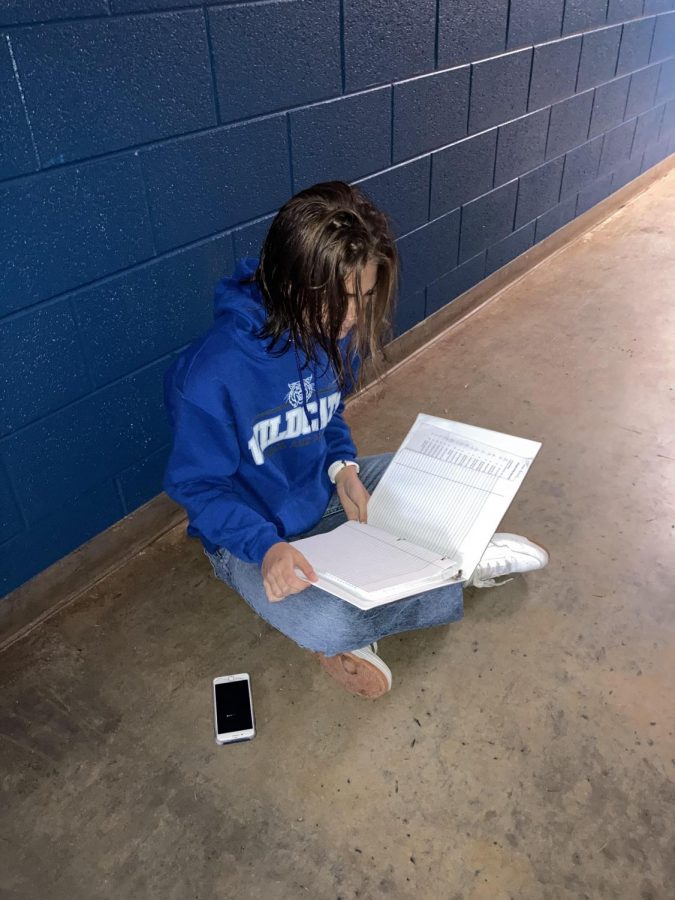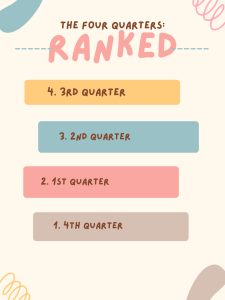AP Athletes Face Stress
October 5, 2021
Rockbridge County High school has a diverse class curriculum with different levels of each class. From culinary to calculus, students are given the opportunity to pursue interests and academic desires. Some of these classes, though, are not for the faint of heart. These rigorous classes are known as advanced placement, or AP, and are easily the most difficult classes RCHS has to offer.
Bold and brave students take on these classes every year, they are faced with a much larger workload as well as more in depth learning and tests. These classes are meant for students to achieve a further in depth understanding of the subject, as well as give them an opportunity to achieve a higher than 4.0 GPA. The high risk, high reward nature of advanced placement classes undoubtedly requires a large time commitment and comes with a certain level of stress, but some students already have the time commitment of athletics.
Varsity football player Garrett Stillwell is enrolled in AP Chemistry, AP US History, AP Spanish V, and AP English. As an athlete, Stillwell participates in after school practices and on top of this still has to complete four AP classes worth of homework as well as the work for his other three classes.
When asked about how he balances all of this and to rank his priorities, Stillwell said, “It’s a lot of stress, I would put school first, then sports, sleep, and lastly social life.”
Cross country and track athlete Grace Rolon is enrolled in similar AP classes with the exception of AP Chemistry.
She comments on the same topic saying, “It’s kind of really hard to balance the four things, but I don’t have freetime to procrastinate stuff so it makes me more efficient.”
She had a similar ranking to Garrett as she said, “The order would be school, sports, social life, sleep”.
Elizabeth McClung is another cross country and track athlete who is enrolled in AP Chemistry, AP US History, and AP English.
When asked about how she ranks her priorities she said, “Sports has to be a priority because I’m required to go to practices and meets, then school, often time I’ll skip on sleep or social life”.
As consistent with these AP athletes, sleep and social life are really just an added bonus if there is time for it. These students have to make good use of their time to complete their schoolwork, often what helps is lots of organization, planning ahead, and commitment.
Taking on such a difficult highschool experience has repercussions though, these repercussions can be unhealthy for students.
When asked about how this year has affected her health, McClung says, “When I have a lot of assignments due and a lot of homework it’s super stressful and my mental health definitely decreases.”
Rolon adds, “I’ve definitely cried over homework several times, especially English.”
Students should be aware of what lies ahead when preparing to trek the path of an AP athlete.
Stillwell says, “This year has definitely been a stress but as Coach always says, ‘It’s just next man up’ so you have to be mentally and physically tough.”
Though there are a few AP classes available for sophomores, the challenge truly begins junior year. The AP gauntlet is incredibly difficult and the freshman and sophomore should be informed of the challenge that awaits them, but also some strategies that could be useful going into it. The AP athletes were asked why do you do this and what would you tell someone who plans to do this,
Rolon suggested, “Just enjoy the summer because then there’s gonna be ten months of a lot of not good times.”
McClung is taking the AP gauntlet because, “I’m taking hard classes to challenge myself and for my college resume, I would tell someone to maybe not take three AP classes.”
AP classes are undoubtedly difficult and are hard to enjoy due to the immense amount of effort required to succeed, students should think about what they want and what they need before making this commitment.
Garrett explains, “I think it’s important to just do what you want to do, don’t just do it for college, you do it because you want to do it
Make sure you have a balance because you don’t wanna overload yourself with homework and stay up until two in the morning just to have practice the next day, that’s just not a good balance.”
The ability to follow a passion for athletics as well as quenching a thirst for knowledge is what being an AP athlete is all about. It is the most difficult way to go through highschool but also the most rewarding in terms of a better college resume and less required classes in college. If one is currently taking on this challenge then they should try to stay strong, and if one plans to take on the challenge in the near future then they should be prepared for the struggles that await them.








